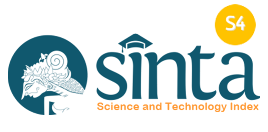PERAN PUSTAKAWAN DI ERA GLOBALISASI
DOI:
https://doi.org/10.24269/pls.v8i2.11420Abstract
Abstract. This article discusses the crucial role of librarians in facing the challenges of globalization and digitalization. As the frontline in library management, librarians are responsible for ensuring that the public and library users can effectively access information and knowledge. Globalization has brought significant changes in society's preferences, with an increasing reliance on digital technology over conventional methods. Therefore, librarians are required to have strong technological skills, manage digital collections such as e-books, e-journals, online databases, and audiovisual materials, and provide fast, innovative services that meet the needs of the digital natives generation.
Moreover, librarians must adapt to the rapid revolution of information, provide integrated services, and add value to the information provided. Libraries now serve not only as repositories of physical collections but also as digital service centers that facilitate access to information in various formats. Thus, the role of librarians extends beyond collection management, positioning them as active agents of change who are innovative and responsive to the needs of modern society.
This article emphasizes that the success of librarians in facing the challenges of globalization relies heavily on their ability to transform and enhance digital-based services, meeting the public's expectations for quick, easy, and relevant information.
Downloads
Published
How to Cite
Issue
Section
License
Licence
This Journal will place Author as Copyright Holder, The non-commercial use of the article will be governed by the Creative Commons Attribution license as currently displayed on Creative Commons Attribution-NonCommercial-ShareAlike 4.0 International License.

Author(s)' Warranties
The author warrants that the article is original, written by stated author(s), has not been published before, contains no unlawful statements, does not infringe the rights of others, is subject to copyright that is vested exclusively in the author and free of any third party rights, and that any necessary written permissions to quote from other sources have been obtained by the author(s).
Plagiarism Notice
PUBLIS Editorial board recognizes that plagiarism is not acceptable and therefore establishes the following policy stating specific actions (penalties) upon identification of plagiarism/similarities in articles submitted for publication in PUBLIS. PUBLIS will use Turnitin's originality checking software as the tool in detecting similarities of texts in article manuscripts and the final version articles ready for publication. A maximum of 30% of similarities is allowed for the submitted papers. Should we find more than 30% of the similarity index, the article will be returned to the author for correction and resubmission.

_baru.png)










